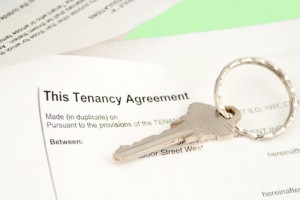23rd Mar 2012

Are You Following the Law?
Owning rental property – be it residential or commercial – can be a lucrative business. But being a landlord also has its share of pitfalls and land mines. A prudent property owner who is careful to avoid some very simple mistakes will find that the business of owning property can have a lot fewer headaches.
Below are some helpful pointers to assist both the novice and experienced landlord with some common misconceptions and assumptions about the landlord/tenant relationship.
1. The Lease
The biggest myth about rental property is that there is one perfect “boilerplate” lease. This is simply not true. In the commercial context, the types of expenses that a tenant pays vary greatly depending on the type of space being rented. Shopping malls, for example, tend to have the most landlord-friendly leases, oftentimes even expressly providing for acceleration of all rent due upon a default by the tenant. Conversely, office suites presently are in low demand, and so many tenants are finding that they can negotiate very favorable terms that include free rent, landlord-funded build-outs, and “tenant-improvement” funds.
The key to any lease is that the parties signing it have a firm grasp of its terms. First and most obvious of these is a written lease agreed upon and signed by both parties. Next, the parties must know who the actual tenant is. Too often, a landlord is in such a rush to sign a tenant to a lease, it forgets to ascertain who its tenant really is. If the tenant is an LLC or corporation, who are its members or shareholders? Often, it makes sense to ask for a personal Guaranty.
On the flip side, as a tenant, one must ask whether he or she as an individual is going to be personally liable for rent if the business fails. These matters must be discussed before the lease is signed. At that point, once the parties know the ground rules, it makes sense to have attorneys experienced at lease drafting compile the finished product.

2. Evictions
Invariably, a landlord will find itself with a problem tenant. Everyone knows what an eviction is, but a surprising number of landlords don’t know how to properly begin one. If a tenant does not pay rent when due, the landlord has the right to send the tenant a Demand for Possession. This document may be sent to the tenant via regular mail (certified mail is NOT required and NOT recommended) or hand-delivered, and gives the tenant 7 days to pay the past due rent. If the rent is not made current, the landlord may file a Complaint in the local District Court to evict the tenant.
If the tenant is current on the rent, and the landlord still wants to end the tenancy, the landlord must give a 30-day notice to the tenant. There are exceptions in residential matters that allow for an almost immediate turnaround on an eviction, but these are limited to situations where a tenant maintains a drug house or carries on other criminal activity.
3. Landlord as Lawyer
One of the most common problems landlords face is the actual court process. Some experienced landlords would prefer to handle the court hearings themselves. However, it must be clear that a landlord who is anything other than an individual cannot be represented by anyone but a licensed attorney in any court proceeding.
Some landlords who own property in the name of an LLC or corporation have told me that they represent their companies and evict tenants. Others have called me after trying this and receiving a stern lecture from a District Court judge about the “unauthorized practice of law.” While some courts may allow this practice by non-lawyers, for whatever reasons (lack of oversight or the old “turning of the head”), it is not legal. The best practice is to contact an experienced landlord-tenant attorney at the first sign of a problem tenant, and work together to craft the best strategy to deal with the problem.
Written by Beier Howlett
Beier Howlett is now on facebook and LinkedIn. For regular updates, news and information from the firm, we invite you to “Like” us on facebook and join our network on LinkedIn.
This publication is distributed with the understanding that Beier Howlett, P.C. is not rendering legal or other professional advice or opinions on specific facts or matters and, accordingly, assumes no liability whatsoever in connection with its use. Forward your comments, change of address, or additions to our mailing list at jmarshall@bhlaw.us.com.
Related Articles


